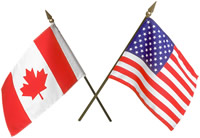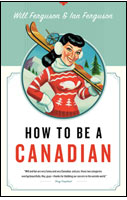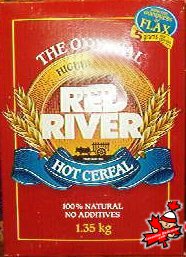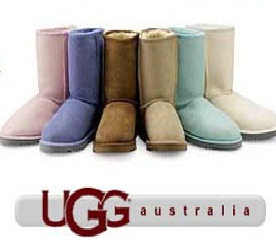Sunday, January 13: The A.D.D. Detective
CAN-AM DICTIONARY
by Leigh Lundin
 As mentioned before, I’ve been discovering more Canadian writers, thanks to friends north of the border and to Liz Ruch’s literary group in Winter Park. These (mostly) Southern ladies who meet monthly at the Morse Museum, feel a bond of the heart with Canadian writers, even if we below the Mason-Dixon line pronounce maple and mountie each with three syllables.
As mentioned before, I’ve been discovering more Canadian writers, thanks to friends north of the border and to Liz Ruch’s literary group in Winter Park. These (mostly) Southern ladies who meet monthly at the Morse Museum, feel a bond of the heart with Canadian writers, even if we below the Mason-Dixon line pronounce maple and mountie each with three syllables.
Americans, thanks to our government’s ‘preventive wars’ and foreign policies, have been seen masquerading as Canadians when traveling abroad, wearing toques and T-shirts with maple leafs and muttering ‘eh’ at the end of sentences.
As the ladies of my literary group could tell you, a plaid shirt (more Alaskan than Canadian) and an occasional ‘eh’ is not sufficient. To help Americans abroad pass, I hereby provide this helpful Canadian-American dictionary.
| Leigh’s Canadian-American Dictionary | ||
|---|---|---|
| Canadian | American | |
|
||
|
||
|
||
|
||
|
||
|
||
|
||
|
||
|
||
|
||
|
||
|
||
|
||
|
||
|
||
|
||
|
||
|
||
|
||
|
||
|
||
|
||
|
||
|
||
|
||
|
||
Spelling
Nobody knows how any given word is spelled. A word might use English spelling, American spelling, French, Farsi, Australian, or uniquely Canadian. Just guess, ’cause nobody’s sure.
Travel Notes
To the embarrassment of Florida whose politicians insists more studies are needed to prove rapid transit works (although for decades Disney World has a working monorail with a nearly perfect operational record), Edmonton sports a commuter subway, called the LRT, which around midnight stands for Luckily Running Train. Although the commuter line is simple compared to New York, Paris, or London, the official map is meaningless to outsiders. For the convenience of visitors, I’m providing this handy guide:



























The French did not invent French fries. The Belgians did. Only Germans call them pommes frites. To native speakers of Frog, they are simply frites.
Chili fries are from Cincinnati? I always thought they were invented at Pink’s, the legendary L.A. hot dog stand.
In Britspeak, “napkin” means “diaper”.
One way to immediately spot a Canadian is by the label on the beer he’s drinking.
I live an hour from O Canada, so this brought back lots of memories for me. You forgot “about” which means the same thing in both countries but in Canada ia pronounced “aboot.” Now that I think of it, I had a story in Michae; Bracken’s book HARDBOILED that mentioned that word and turned on dialect variations.
There is a Canadian band called the Arrogant Worms and one of the many national anthems they have written is called “We Are The Beaver.” An excerpt:
You might think a rodent is a pretty lame choice
For a national animal, but don’t you listen to that voice.
No, cause all them birds and preditors, just take from the land
But the beaver, always gives a dam.
We are the beaver, we got cute little webbed feet
Yeah, we are the beaver, it’s bark we like to eat
Yeah, we are the beaver, a nickel we complete.
Yeah, we are the beaver, we are the beaver, we are the beaver.
Without Canada and Mexico, Budweiser drinkers would forget what real beer tastes like.
Got to love the shopping!
Americans typically awaken to this name when asked, “You don’t know who the Suttons are?”
I thought that everybody knew that the “Suttons” refers to the Sutton Coldfield Hockey Club in England, first founded in the late 19th century as a Ladies Indoor League Team.
No?
… a plaid shirt (more Alaskan than Canadian) …
Actually, more Seattle grunge than Alaskan frontiersman.
(From a guy whose paternal grandfather was a Cunuck, and who has spent a lot of time in Alaska, after all.)
The inimitable Will Ferguson, co-author of How to be a Canadian, kindly took the time to send the following note:
Your message was forwarded to me, along with a link to your Can-Am dictionary, which I enjoyed immensely. It’s very funny. (Note: Americans say we pronounce about as “a boot” but if you listen carefully you’ll notice we actually say “a boat.” As in, “How far to Winnipeg? A boat an hour.”
I certainly couldn’t let Will be the only Ferguson brother to compliment you on your Can-Am dictionary, and I also wanted to point out that when the first leg of the Edmonton LRT opened the route consisted of only four, count ’em, four stops – Jasper, City Centre, Stadium and Coliseum. The U of A stations and the Middle of Nowhere weren’t added for years and years.
Cheers, Ian Ferguson.